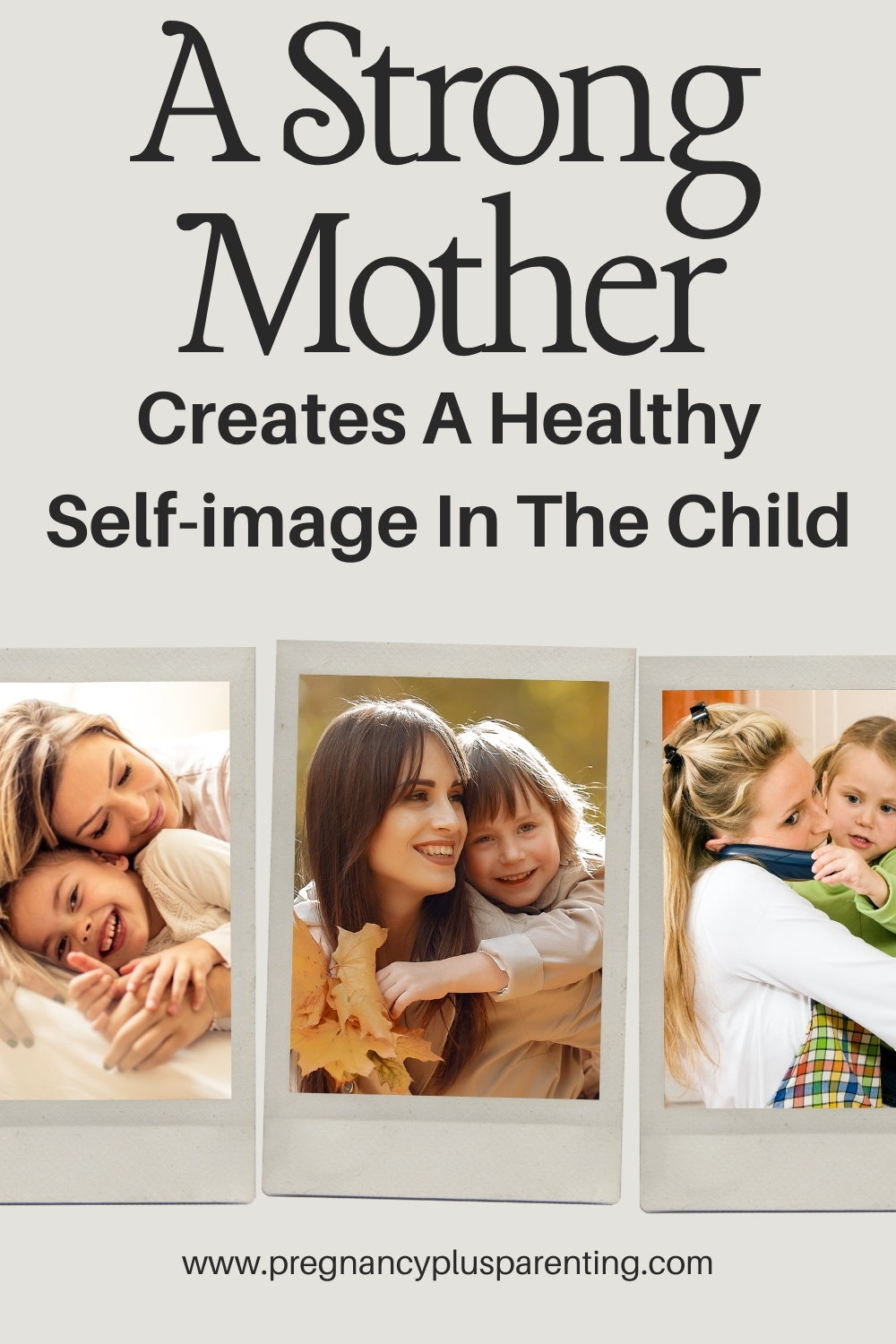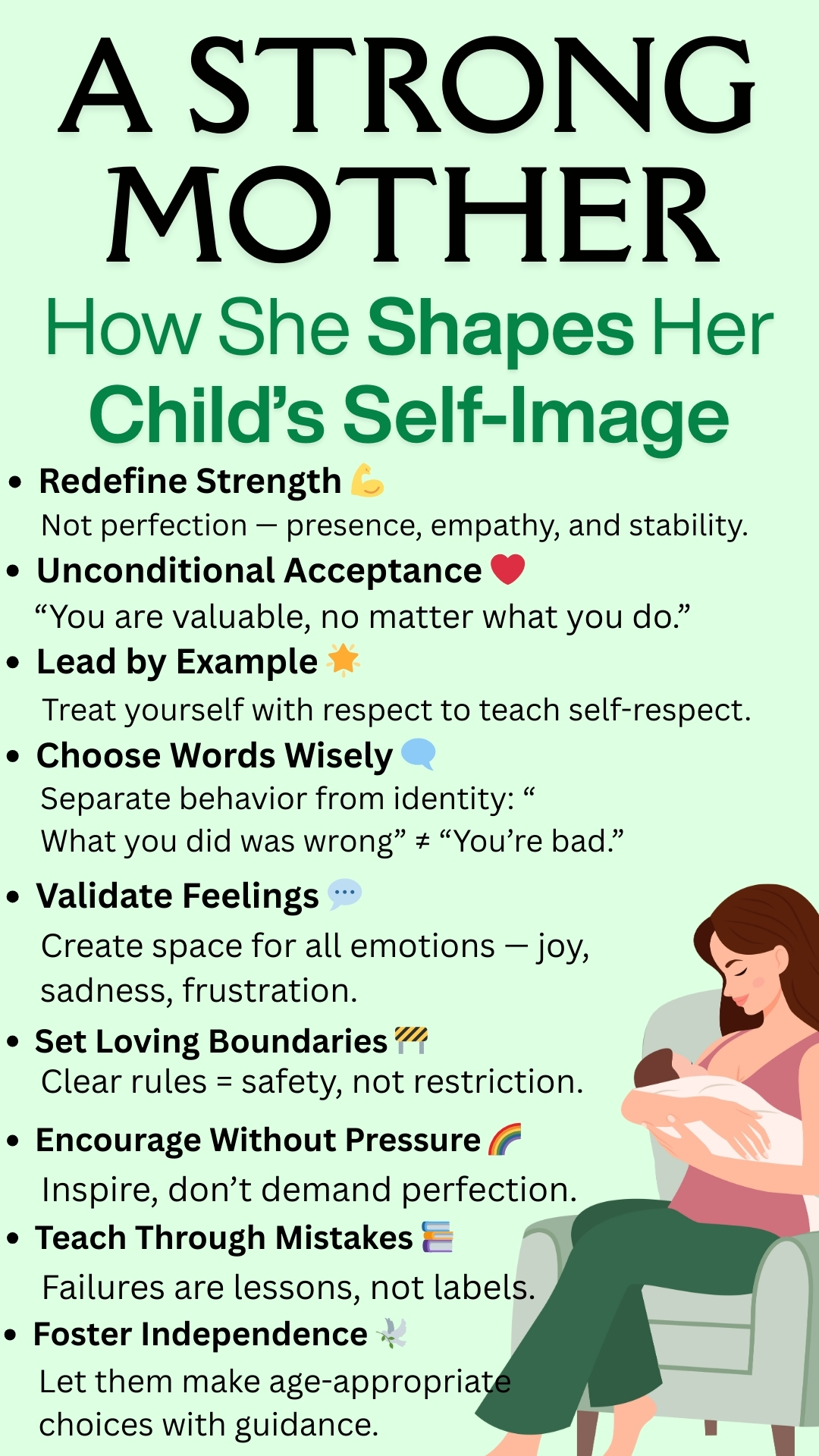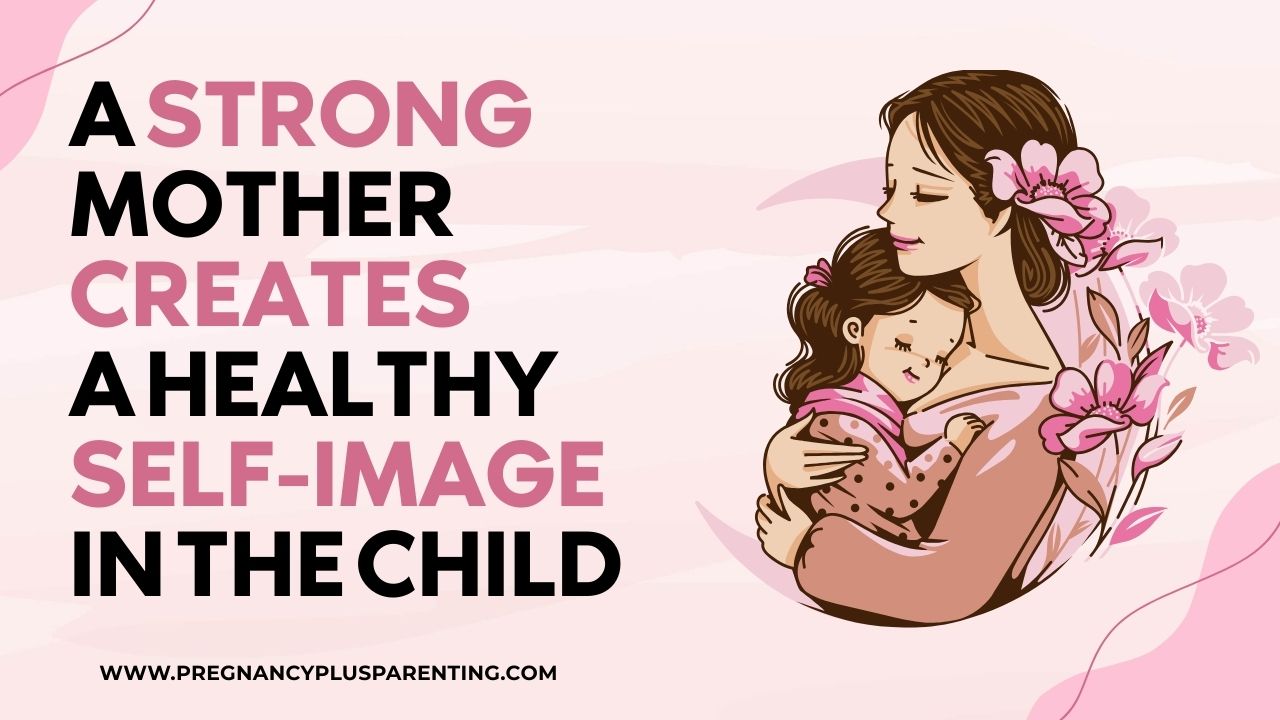A Strong Mother Creates A Healthy Self-image In The Child
A child’s self-image is like a delicate plant — it needs warmth, protection, space to grow, and consistent care. A strong mother is often the most important influence in this process.
Not strong in the sense of being unshakable or perfect, but strong in being present, empathetic, and emotionally stable. She offers her child not only love, but also a deep sense of security and self-worth.
In a world where children face comparisons, expectations, and performance pressure from an early age, it is even more important that home remains a place where their worth is unconditional.
This is where a strong mother can make all the difference — by creating an environment in which the child feels fully accepted for who they are.
What Does “Strong” Really Mean?
Many people confuse strength with toughness. But a strong mother is not someone who never shows emotion or hides every weakness.
True strength lies in acknowledging her own insecurities, reflecting on herself, and still being able to offer her child support and stability.
In this sense, strength also means taking responsibility for her own emotional health.
Children can sense whether their mother is emotionally steady. A mother who can regulate her emotions naturally teaches her child how to manage their own feelings.
Unconditional Acceptance — The Foundation of a Healthy Self-Image
A child’s self-image is shaped primarily by feedback from their closest caregivers.
When a mother tells her child, “You are valuable, no matter what you do or achieve,” she lays the foundation for a stable sense of self.
Unconditional acceptance does not mean that everything is allowed or that there are no limits.
It means that a mother’s love for her child is not dependent on behavior. This allows the child to understand: “I am not my mistakes — I am allowed to learn from them.”
The Power of Being a Role Model
Children learn far more from what they observe than from what they are told.
A mother who treats herself with respect subconsciously teaches her child to do the same. When a child sees their mother take breaks, meet her own needs, and speak kindly to herself, they learn: “It’s okay to be good to myself.”
Conversely, a mother who constantly criticizes herself may unintentionally teach her child to adopt that same self-critical voice.
This is why self-care is not only important for the mother’s well-being, but also for the emotional legacy she passes on.
Communication — The Lasting Impact of Words
The way a mother speaks to her child directly affects their self-image. Praise is important, but it works best when it is specific and genuine.
Instead of saying, “You’re the best,” it’s more empowering to say, “I’m proud of how hard you tried.”
The same applies to criticism. A strong mother separates behavior from identity: “What you did wasn’t right,” rather than “You’re impossible.”
This teaches the child that making mistakes doesn’t diminish their worth.

Emotional Security — A Safe Space to Grow
Children who know their feelings are taken seriously develop a healthy sense of self.
A strong mother listens without rushing to judge and sends the message: “Your feelings matter.” This also means creating space for sadness, frustration, or disappointment.
A child who learns that all emotions are valid will grow into an adult who can process and express feelings constructively — rather than suppressing or being ashamed of them.
Boundaries — Security Through Clarity
A healthy self-image doesn’t come from unlimited freedom, but from clear, loving boundaries.
A strong mother says “no” when needed and remains consistent without damaging the relationship.
Boundaries give children a sense of safety and structure. They learn: “I matter enough for someone to care for and guide me.”
Encouragement Without Pressure
A strong mother recognizes her child’s talents and interests without forcing them in a certain direction. She encourages them to try new things, but respects their limits.
This builds self-confidence without creating the feeling that they must always be perfect. “I believe you can do this” inspires; “You have to do this” pressures.
Turning Mistakes Into Lessons
Mistakes are a natural part of growth. A strong mother teaches her child that failures are not defeats but opportunities to learn.
Instead of focusing on the failure, she asks: “What can you do differently next time?” This helps the child face challenges with resilience and a problem-solving mindset.
Building Self-Esteem Through Independence
A strong mother allows her child to make age-appropriate decisions, offering guidance without taking over. This strengthens their belief in their own abilities.
The more a child experiences that their opinion matters and that they can influence their own life, the more stable their self-image becomes.
This doesn’t mean leaving them alone — it means supporting them in their independence.
When the Mother Isn’t Always Strong
No one can be strong all the time. Mothers also go through phases of overwhelm, doubt, or sadness. What matters is how they handle these moments.
A mother who says, “I’m feeling exhausted right now, but I’m working on regaining my strength,” models a healthy way to handle challenges.
The child learns that strength is not the absence of problems, but the ability to face them.
The Long-Term Impact
Children who grow up in an environment of stability, acceptance, and encouragement carry these lessons into adulthood.
They are more likely to follow their own goals, build healthy relationships, and trust themselves — even in difficult situations.
A stable self-image acts as an inner compass, protecting them from negative outside influences and guiding them to make choices based on their own values.
Conclusion
A strong mother shapes her child’s self-image not through perfection, but through authenticity, consistency, and love.
She is a role model of self-respect, offers unconditional acceptance, sets clear boundaries, and encourages independence.
Her child learns: “I am valuable — just as I am.” And that belief becomes the foundation for a confident, fulfilling life.







